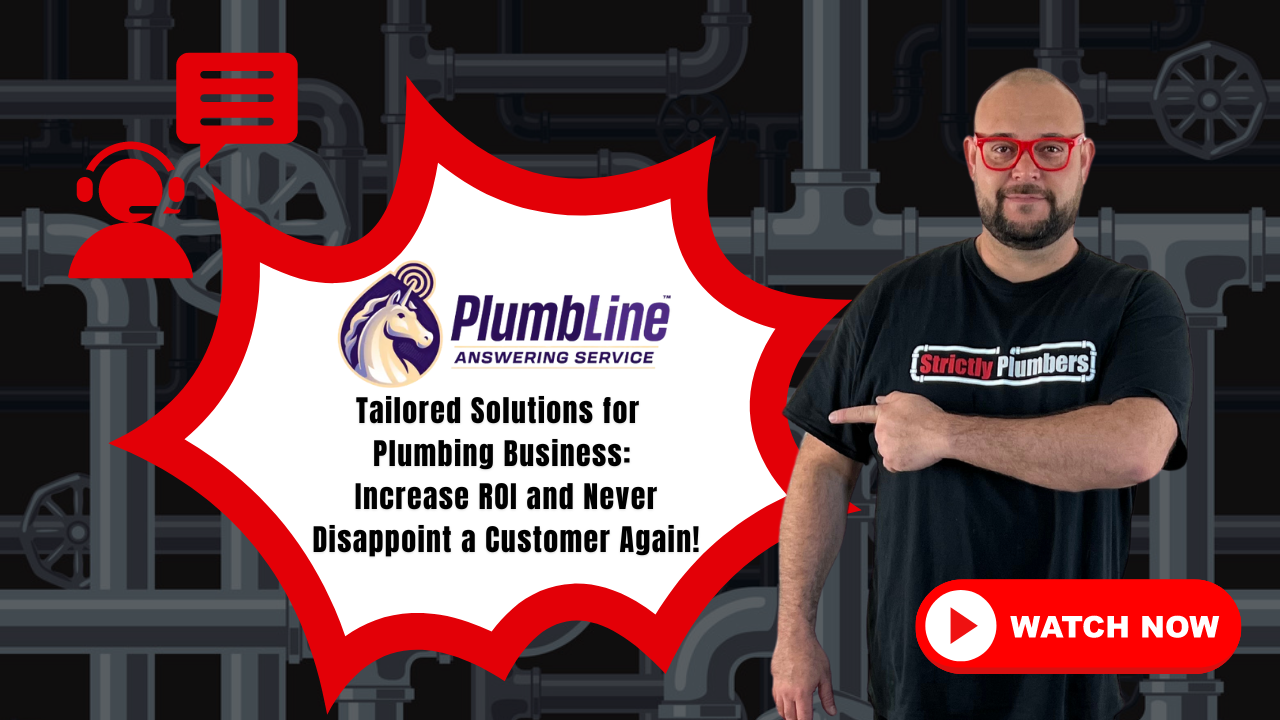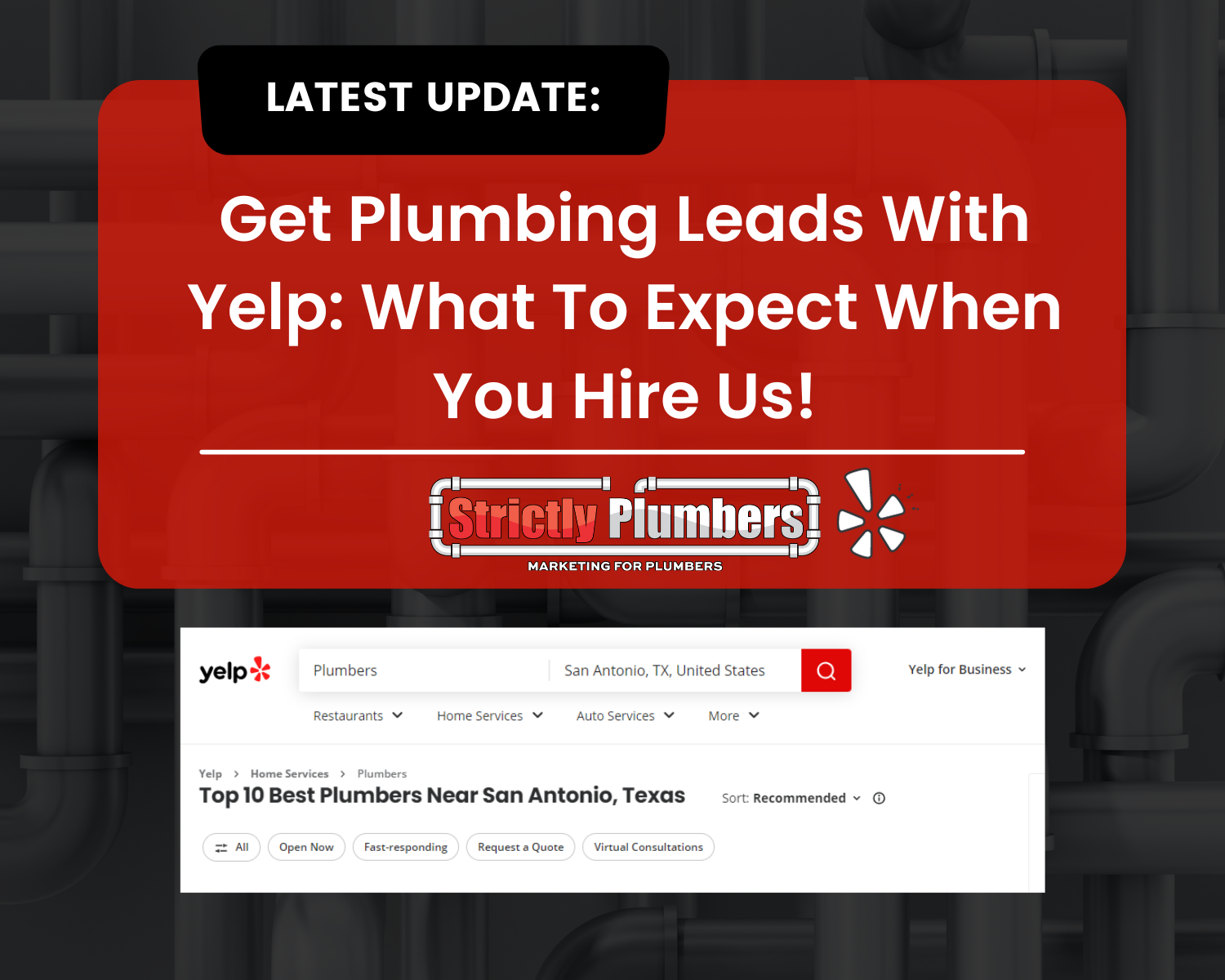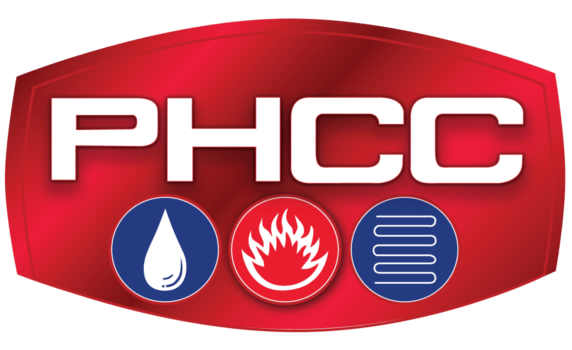How To Implement KPI’s Into Your Plumbing Business
How To Implement KPI’s Into Your Plumbing Business
Are you feeling overwhelmed trying to boost your plumbing business's efficiency? Key Performance Indicators (KPIs) might be the solution you need. As a plumbing business owner, understanding and leveraging KPIs can significantly transform your operations. KPIs are insightful data points that offer an objective outlook on your plumbing business's performance, spotlighting areas that need enhancement. They serve as your guiding beacon towards achieving your business goals. By implementing KPIs, you can join the 60% of plumbing businesses that have seen a boost in their efficiency. But how can you accomplish this? In this blog, we’ll cover the various types of KPIs you should integrate into your plumbing business.
Marketing KPIs
A crucial aspect of running your plumbing business involves keeping an eye on your marketing efforts. Specifically, marketing Key Performance Indicators (KPIs) offer insights into the effectiveness of your marketing strategies and are critical in making informed business decisions. Here are some marketing KPIs that you should consider implementing in your plumbing business:
- Cost Per Impression: This KPI measures the cost incurred for every individual who sees your advertisement. It helps gauge the financial efficiency of your marketing campaigns and assists in budget optimization.
- Cost Per Click: This is the cost an advertiser pays each time a user clicks their online ad. It's an essential KPI for digital marketing as it helps assess the cost-effectiveness of your campaigns in driving user engagement.
- Cost Per Lead: This KPI quantifies the cost of acquiring a prospective customer. It's crucial for understanding the effectiveness of your lead generation efforts, helping to identify the most cost-effective marketing channels.
- Cost Per Conversion: Cost per Conversion or Cost per Acquisition, measures the cost associated with converting a lead into a paying customer. This KPI is crucial as it directly relates to the profitability of your marketing efforts.
- Acquisition Costs: This encompasses all costs incurred to acquire a new customer, from marketing and sales expenses to any additional costs associated with onboarding. It’s crucial to track this KPI to ensure the profitability of your customer acquisition strategies.
Marketing KPIs serve as critical tools for evaluating the success of your marketing strategies, providing tangible metrics to assess cost-effectiveness, customer acquisition, and overall profitability. By regularly monitoring and analyzing these KPIs, you can make data-driven decisions that optimize your plumber marketing efforts, improve your lead generation, and ultimately increase your customer base.
Dispatch KPIs
Effective management of your dispatch operations is another crucial area where Key Performance Indicators (KPIs) can make a transformative impact on your plumbing business. Monitoring dispatch KPIs helps to manage your resources efficiently, ensuring jobs are completed promptly while minimizing costs. Here are some important dispatch KPIs to consider for your plumbing business:
- Total Daily Cost: This KPI calculates the total expenditure of your dispatch operations in a day. It's essential for tracking your daily operational costs and identifying opportunities for cost reduction.
- Type Of Plumbing Calls With Dispatch: This KPI categorizes the type of plumbing calls received and dispatched. It provides valuable insights into the most common issues your business is called to address, allowing for targeted training and resource allocation.
- Plumbing Appointments: This KPI tracks the number of plumbing appointments scheduled in a period. It provides a snapshot of your business activity level, helping to manage resources effectively and plan for peak periods.
- Cost Per Conversion/Scheduled Appointments: This KPI measures the cost incurred for every appointment scheduled through dispatch. It helps assess the cost-effectiveness of your dispatch operations and is useful for optimizing scheduling and improving profitability.
- Cost Per Acquisition/Sales And Invoicing: This KPI gauges the cost of acquiring a customer through the dispatch system, from the initial call through to invoicing. It offers insights into the cost efficiency of your sales process and aids in identifying areas for improvement.
- Cancellation Rate: This KPI calculates the percentage of scheduled appointments that are canceled. A high cancellation rate may indicate issues with scheduling or customer service, making this an essential KPI for improving customer satisfaction and retaining business.
Regular monitoring and analysis of these Dispatch KPIs will enable you to manage your dispatch operations effectively, leading to improved customer service, operational efficiency, and profitability.
Sales KPIs
In the realm of plumbing business, sales Key Performance Indicators (KPIs) provide in-depth insights into your business's profit-generating performance. They help you understand the effectiveness of your sales strategies, identify opportunities for improvement, and maximize your profitability. Let's delve into some of the crucial sales KPIs that your plumbing business should consider:
- Plumbers KPIs: This KPI tracks the performance of individual plumbers in your team. It can include measurements like the number of jobs completed, customer satisfaction rate, and the value of invoices generated. Monitoring these metrics can help identify star performers and areas where training may be needed.
- Leads Run Per Day: This KPI quantifies the number of potential customers or leads engaged in a day. It's crucial for understanding the effectiveness of your lead generation efforts and can help in planning and resource allocation.
- Estimates And Invoices: This KPI records the number of estimates provided and invoices issued. It provides insights into your business's sales activities, helping to track your conversion rates and measure the effectiveness of your sales process.
- Type Of Plumbing Job: This KPI categorizes the types of jobs your business handles, such as drains, water gas, water heaters, spot repairs to reroutes and repipes, and water line spot lines converted to a reroute or a repipe. This data can help you understand your market better and optimize resource allocation based on demand.
- Drain Cleaning Converted To Drain Repair Or Trenchless: This KPI measures the conversion rate of drain cleaning jobs to drain repair or trenchless jobs. A higher conversion rate indicates successful upselling, contributing to increased profitability.
- Water Filtration Systems Sold: This KPI tracks the number of water filtration systems sold over specific time periods (daily, weekly, etc.). It's a key indicator of your product sales performance and can help identify trends and plan for inventory management.
- Average Invoice And Monthly Sales: This KPI calculates the average value of your invoices and total monthly sales. It's crucial for tracking your revenue performance and identifying any trends or potential issues impacting profitability.
By implementing these sales KPIs and regularly monitoring them, you can gain valuable insights into your sales operations. It can help you streamline your processes, improve decision making, and ultimately drive your plumbing business towards success.
Growth KPIs
For a progressive plumbing business, growth Key Performance Indicators (KPIs) are of paramount importance. They provide insights into the success of your growth strategies and the return on your investments. Here are some crucial growth KPIs you should incorporate:
- Average Invoice Marketing VS. ROI In Marketing: This KPI compares the average income generated from invoices against the return on investment in marketing. This metric offers substantial insights into the effectiveness of your marketing efforts and their contribution to your business income.
- Number Of Jobs by Plumbers Per Day/Month: This KPI tracks the productivity of your workforce by quantifying the number of jobs handled per day or month. It can help monitor individual performance, plan work schedules, and identify areas for improvement.
- New Hires: Counting the number of new hires shows the expansion of your team, which reflects your company's growth and the need to meet increased demand.
- Number Of Plumbers: Keeping track of the size of your team gives you insights into your operational capacity and helps in manpower planning.
- Overhead VS. Profit: This KPI calculates the proportion of your income that goes towards overhead costs and compares it to your profit. A lower overhead-to-profit ratio indicates healthier business performance.
- Gross Profit Margin: Calculating your gross profit margin as a percentage shows the proportion of your revenue that remains after subtracting the cost of goods sold (including materials and gasoline). This KPI is vital for understanding your financial health.
- Operational Costs: This KPI tracks costs related to daily business functioning, such as materials, gasoline, etc., helping maintain cost efficiency.
- Growth Rate Percentage Per Year: This KPI measures the annual percentage increase in your business, providing an overall sense of your company's growth and helping set future goals.
Utilizing a competent Customer Relationship Management (CRM) system like Jobber or Housecall Pro can significantly simplify tracking these KPIs. These CRMs facilitate easy monitoring with just a click of a button. They are essential tools to help track job tags and leads, providing valuable insights to assist in growing your plumbing business.
In conclusion, the implementation and diligent tracking of KPIs is an essential step to unlocking the potential of your plumbing business. Leveraging these metrics allows for improved strategic decision making, enhanced operational efficiency, increased profitability, and robust growth. However, navigating these KPIs can be challenging without expert guidance. Tony Gee is a trusted plumbing business coaching expert.
With over 15 years of experience as a plumber and a proven track record of helping over 450 businesses flourish, Tony offers valuable insight and practical methods for KPI implementation. Don't miss this opportunity to turbocharge your plumbing business' growth. Schedule an appointment today to grow your plumbing business and make more money.





